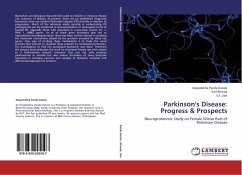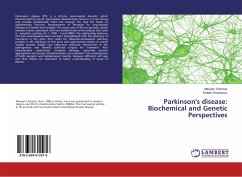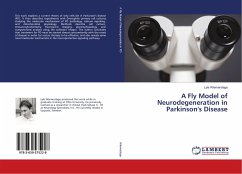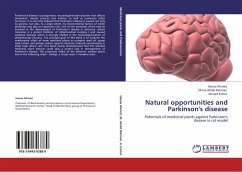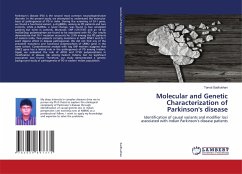Biomarkers are biological characteristics used to indicate or measure disease risk, presence of disease. At present, there are no established diagnostic biomarkers that can confirm Parkinson's disease (PD) clinically or monitor its progression. Much of the advances made recently in understating PD pathogenesis can be attributed to characterizations of monogenic forms of familial PD, especially those with mutations in a-synuclein, parkin, DJ- 1, PINK 1, LRRK2 genes. As all of these gene mutations give rise to nigrostriatal neurodegeneration there has been intense interest in studying the molecular mechanisms played by the proteins encoded by these key genes. One way of probing these mechanisms is to study the novel proteins that interact or regulate these proteins by nonbiased proteomics. The investigation to find out serological biomarker was done. Therefore the present book embodies the work on treatment female rats with vehicle or a Parkinsonian toxicant rotenone that can not only produce parkinsonism in animals but also induce formation of Lewy body-like inclusions in surviving neurons and analysis of behavior, enzymes and differential expression of proteins.
Bitte wählen Sie Ihr Anliegen aus.
Rechnungen
Retourenschein anfordern
Bestellstatus
Storno

